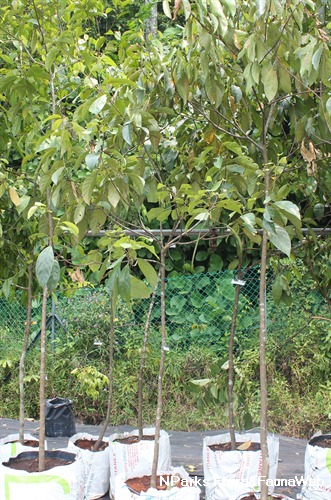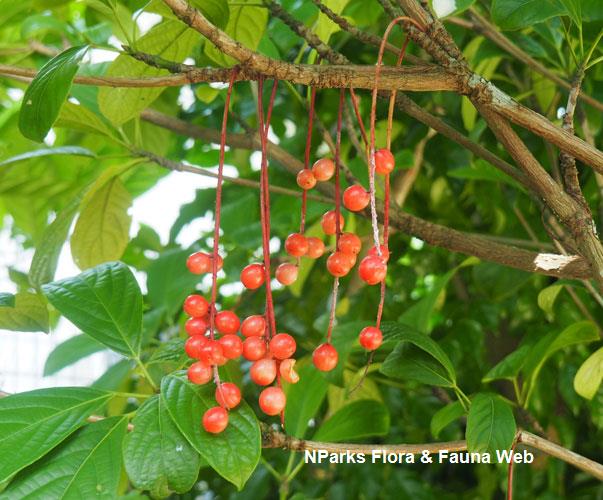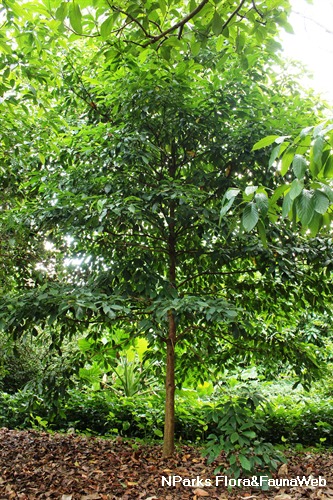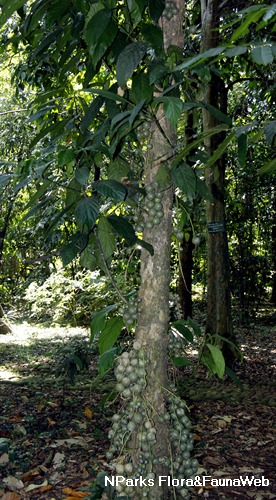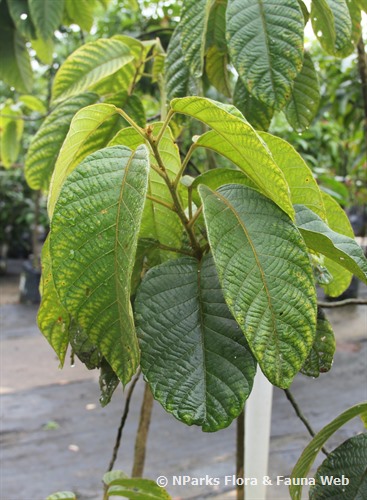
Back
Baccaurea polyneura Hook.f.
| Family Name: | Phyllanthaceae |
| Synonyms: | Baccaurea hookeri, Baccaurea cordata, Baccaurea kunstleri |
Name
Classifications and Characteristics
| Plant Division | Angiosperms (Flowering Seed Plants) (Dicotyledon) |
|---|---|
| Plant Growth Form | Tree |
Biogeography
| Native Distribution | Thailand, Sumatra, Peninsular Malaysia, Singapore, and Borneo |
|---|---|
| Native Habitat | Terrestrial |
| Preferred Climate Zone | Tropical |
| Local Conservation Status | Native to Singapore (Vulnerable (VU)) |
Description and Ethnobotany
| Growth Form | It is a tree up to 30 m tall, with an irregularly-shaped crown. |
|---|---|
| Foliage | Its alternate, long-stalked leaves have papery to slightly leathery leaf blades that are oblong and 5.5–22 by 3.1–13 cm. |
| Flowers | Its flowering clusters are found on branches and not on the trunk as in some other Baccaurea species. The male flowering clusters are up to 7 cm long, bearing many male flowers at the tip that are 1.1–3.3 mm-wide, and green to yellow to greenish-white. The female flowering clusters are up to 35 cm long, bearing up to 50 female flowers that are yellow and 2.5–6.5 mm-wide. |
| Fruit | Its fruits are egg-shaped, 1–3-seeded, fleshy, having dehiscent capsules, are yellow to orange, and 10–26 by 12–26 mm. Its seeds are ellipsoid, laterally flattened, 5–9.8 mm wide, and enclosed in red aril-like flesh. |
| Ethnobotanical Uses | Edible Plant Parts : Edible Fruits Food (Fruit or Vegetable) Others: The durable timber is used in making house-posts. The aril-like flesh is edible and sweet to sour. |
Plant Care and Propagation
| Light Preference | Full Sun |
|---|---|
| Water Preference | Moderate Water |
| Plant Growth Rate | Moderate |
Image Repository
Others
| Master ID | 29284 |
|---|---|
| Species ID | 3593 |
| Flora Disclaimer | The information in this website has been compiled from reliable sources, such as reference works on medicinal plants. It is not a substitute for medical advice or treatment and NParks does not purport to provide any medical advice. Readers should always consult his/her physician before using or consuming a plant for medicinal purposes. |

